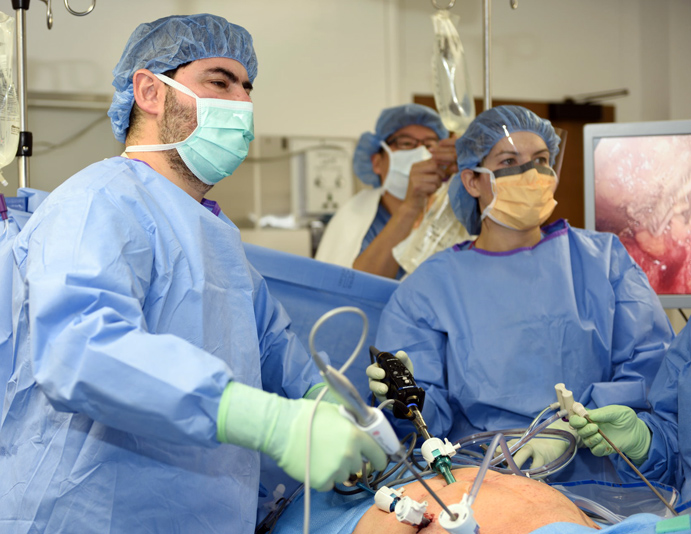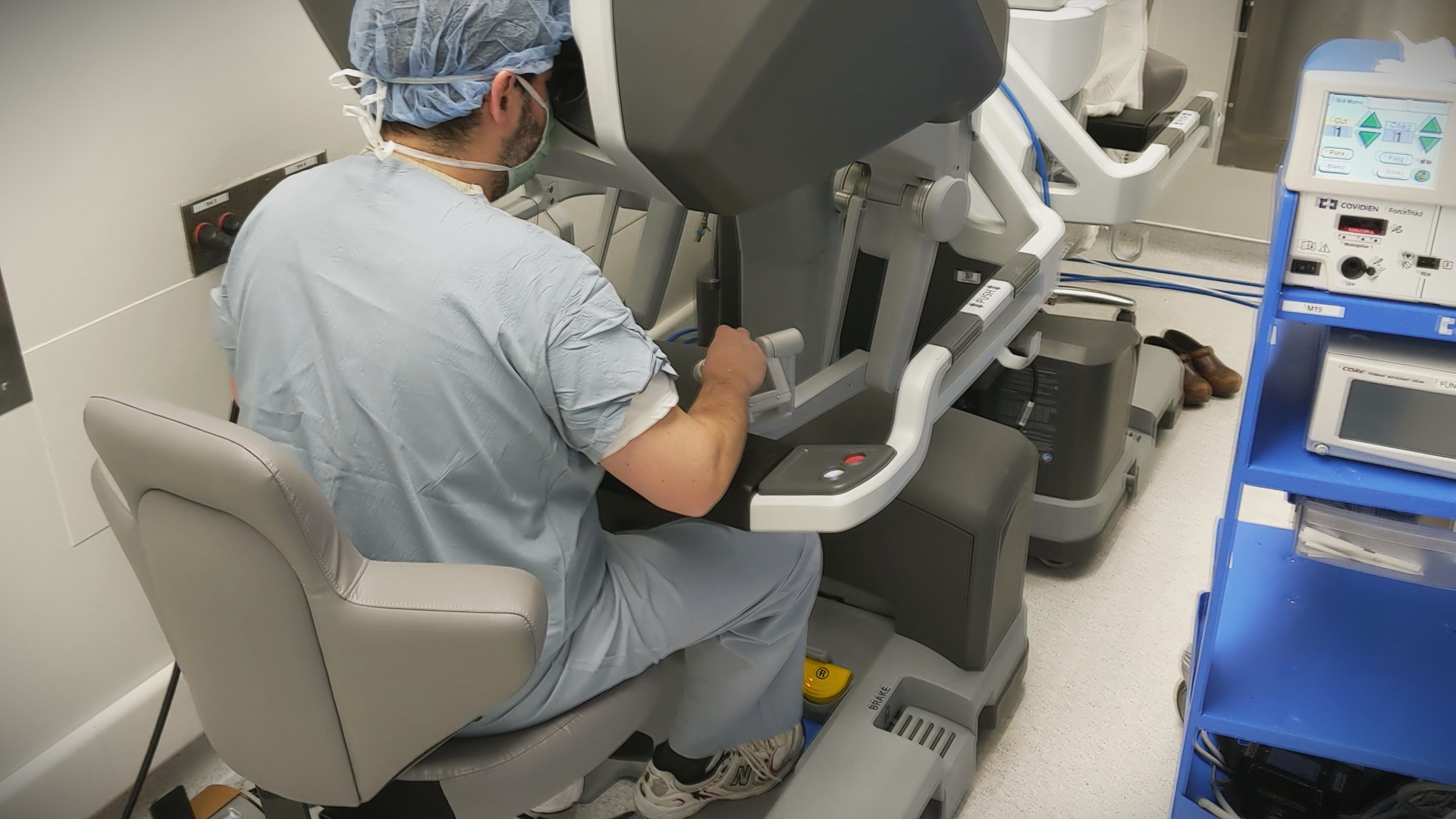The
Society of American Gastrointestinal Endoscopic Surgeons (SAGES)
endorses the following concepts for training in laparoscopic surgery:
Laparoscopic operations are integral components of general surgery.
Training of general surgeons in the foundations of laparoscopic
surgery should occur within the general surgery residency. Basic
laparoscopic surgery is comprised of: diagnostic laparoscopy,
laparoscopic cholecystectomy, and laparoscopic appendectomy. These
are operations that every general surgeon should be comfortable
performing today.
Most training centers in the US today are in possession of at least one surgical robot and this trend is rapidly progressing. Most surgical, urological, OB/GYN residency programs have now incorporated robotic skill training that will allow a lot more surgeons to offer minimally invasive procedures when they enter practice.
 Advanced robotic/laparoscopic surgery requires more complex skill
set and more extensive training. Certain operations require
proficiency in robotic/laparoscopic suturing techniques, safe tissue
retraction and handling and an in-depth knowledge of the various
energy devices, cutting and stapling apparatus available today. The
breadth of general surgery training is insufficient to provide
trainees with a sufficient number of cases to attain
proficiency in advanced minimally invasive surgery, therefore young surgeons
need to complete additional years in fellowship training where they
deal with nothing but such complex surgical problems managed with
these techniques. Selection of prospective candidates to these
training programs is managed through the Fellowship Council via a
matching program and these are very competitive training
opportunities.
Advanced robotic/laparoscopic surgery requires more complex skill
set and more extensive training. Certain operations require
proficiency in robotic/laparoscopic suturing techniques, safe tissue
retraction and handling and an in-depth knowledge of the various
energy devices, cutting and stapling apparatus available today. The
breadth of general surgery training is insufficient to provide
trainees with a sufficient number of cases to attain
proficiency in advanced minimally invasive surgery, therefore young surgeons
need to complete additional years in fellowship training where they
deal with nothing but such complex surgical problems managed with
these techniques. Selection of prospective candidates to these
training programs is managed through the Fellowship Council via a
matching program and these are very competitive training
opportunities.
Robotic technology has dramatically simplified minimally invasive surgical training and some of the procedures previously required fellowship training have now entered into the skillset of routine training.
Dr. Sandor is fully trained and has been performing advanced laparoscopic surgical procedures
with excellent outcomes for many years. He completed a rigorous training in robotic surgery in 2018 with proctoring by some of the most experienced robotic surgeons in the contry and has shifted most of his surgeries to the robotic platform.
The Commonwealth Weight Loss Center offers the following advanced robotic and laparoscopic operations:
- Robotic Inguinal, Umbilical, Ventral and Incisional Hernia Repair
- Robotic Weight Loss Procedures
- Robotic Sleeve Gastrectomy
- Robotic Roux-en-Y Gastric Bypass
- Robotic Sadi-S Procedure
- Robotic BPD-DS Procedure
- Robotic Revisional and Conversion Bariatric Surgeries
- Robotic Anti-reflux/Esophageal Procedures
- Robotic Nissen and Toupet Fundoplication
- Robotic Ligamentum Teres Cardiopexy
- Robotic Heller Myotomy and Dor Fundoplication for the Treatment of Achalasia
- Robotic Hiatal Hernia Repair
- Robotic Enterolysis
- Robotic Gastrostomy and Feeding Jejunostomy placement
- Robotic Gastrectomy
- Robotic Small and Large Bowel procedures
- Robotic Small Bowel Resection
- Robotic Colectomy (Left, Right, Transverse, Sigmoid, Subtotal)
- Robotic Colostomy
- Robotic Colostomy Reversal
- Robotic Adrenal surgery
- Robotic Splenectomy

In some instances robotic access carries no benefit over laparoscopic technique, in other situations a minimally invasive approach is simply not an option or makes no sense. Any robotic or laparoscopic surgery may come to a point when conversion to a full open procedure is inevitable to safely conclude the operation. Each individual case requires careful consideration and you need to have a full understanding of the surgical plan. To learn more about these operations, you may want to check our video library.
